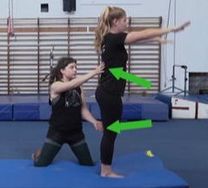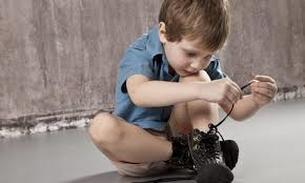
I've been working with this particular fourteen year-old boy since he was eight. Recently his lack of progress (specifically as we moved into the adjudication season) had become troublesome. At the beginning of one of our lessons, he came to me and said this lack of progress and motivation had become an umbrella for all that was going on in his life. (As a side note, family life is good, supportive parents, relationships are good, no drug use, etc.)
With books like Punished by Rewards by Alfie Kohn, How To Raise An Adult by Juile Lithcott-Haims and the most recent, Grit: The Power of Passion and Perseverance by Angela Duckworth, there is an increasingly growing body of evidence to support the long-term damaging effects of external rewards to create motivation. While external motivation (stickers, trophies, awards) might provide a short-term motivational solution to non-progressing students, (specifically for younger students), it does not provide the long term strategies that create self-directed accountable students, especially when these students hit those volatile teenage years.
Part of our job, as professional educators, is to provide strategies for self-awareness and problem solving. The most effective and long-lasting solutions are created by the student-educator team. The single most important part of this process is that reward (or punishment) is instituted by the learner.
My student and I discussed the idea that motivation can come from either the avoidance of pain or the seeking of pleasure, otherwise known as the proverbial carrot and the stick. It appeared that being motivated by pleasure (feeling proud of his accomplishments) wasn’t presently getting the job done for him. So, and here is the key, he decided that he needed to motivate himself through "pain.” (I am not referring to anything physical.)
This young man happened to be an avid sneaker collector, so he came up with a plan. (To my surprise there is a “sneaker stock market” out there and kids these days collect them for trade and profit more than they wear them!) He gave me one of his most precious pairs of sneakers and told me that in order for him to get them back from me, he had to practice and produce the results he set as his goal.
He was involved in creating his motivational plan. Ultimately, his motivation was generated by him. The fact that the motivation was, in a sense, the avoidance of an external pain, was his choice. I was not the judge, the jury or the enforcer. He was. His empowerment came from himself.
Learning how to motivate yourself is a long term process, but by enrolling your students in creating the solution, you will be providing them a gift that will assist them long after their lessons with you have ended. And as an added benefit, will reduce the amount of stress you experience.
We are now eight weeks from his initiation of his plan, and because he has ownership, he has not fell short of any of his weekly goals!








 RSS Feed
RSS Feed